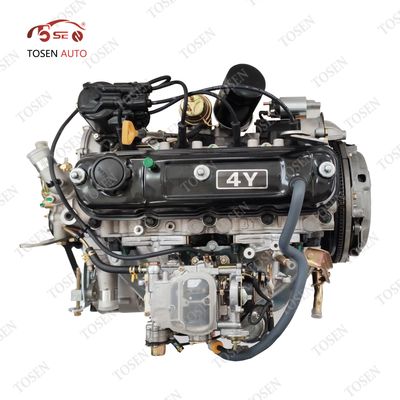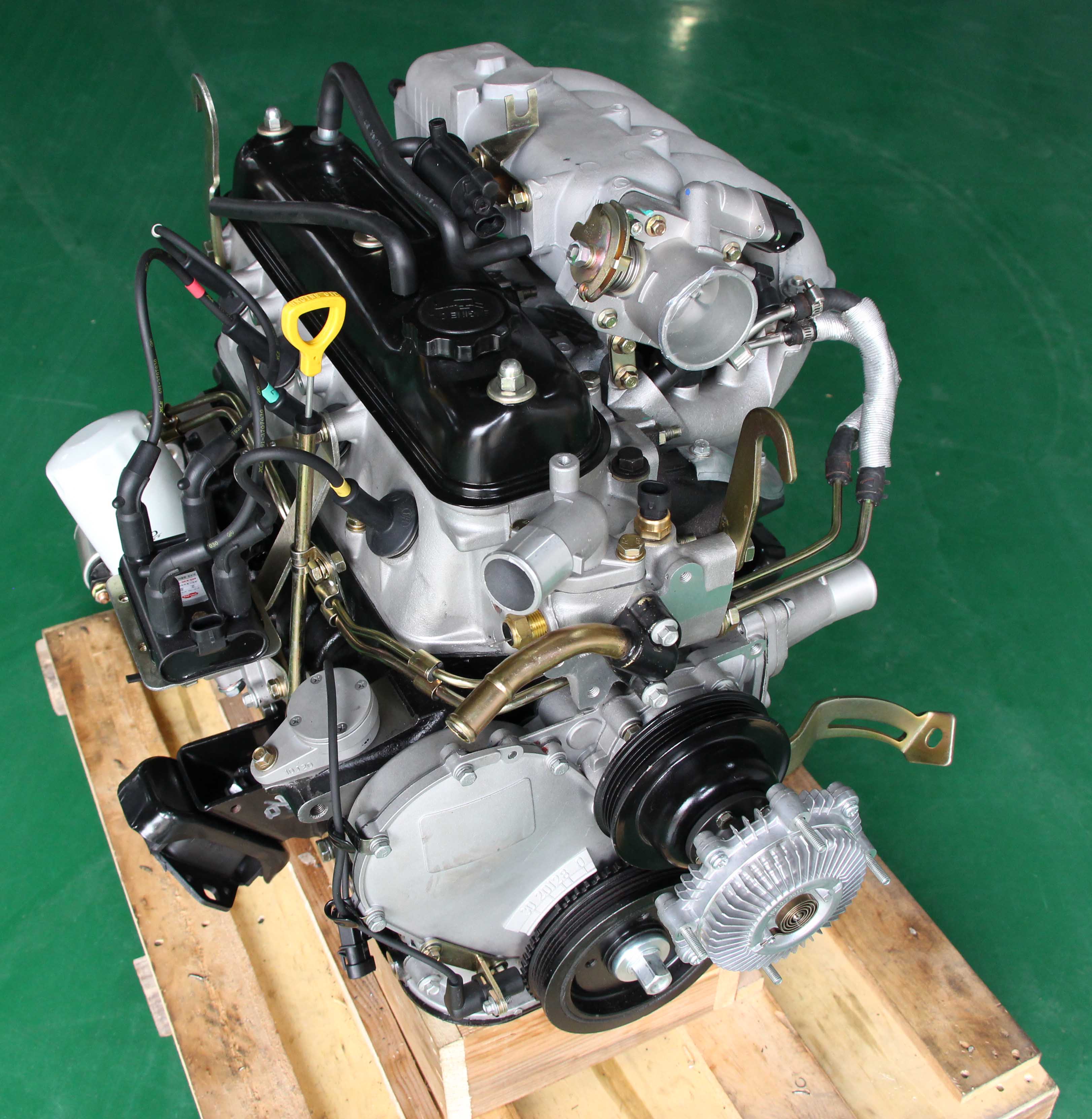Discovering the Various Kinds Of Engine: Which One Fits Your Demands?
Interior combustion engines proceed to dominate due to their integrity, while electric engines are obtaining grip for their sustainability. Hybrid engines offer a versatile compromise, and diesel engines stand out for their power in requiring applications.

Internal Burning Engines
Inner combustion engines (ICEs) are the backbone of modern-day transport, powering a vast selection of automobiles from autos to airplanes. These engines operate the principle of transforming fuel into mechanical power via a series of controlled explosions within a combustion chamber. One of the most common kinds of ICEs consist of fuel engines, diesel engines, and rotary engines, each created to meet details performance and efficiency demands.
Gas engines typically use trigger ignition, while diesel engines count on compression ignition, leading to distinctive differences in gas efficiency and power output (4y engine). Rotating engines, or Wankel engines, provide a compact style and smooth operation, yet are less typically made use of in mainstream applications
ICEs have undertaken significant advancements in modern technology, including the introduction of turbocharging and fuel shot systems, which enhance total performance and efficiency. Despite their efficiency enhancements, ICEs face increasing scrutiny due to their ecological effect, specifically regarding greenhouse gas exhausts.
Electric Engines
As problems concerning environmental sustainability and nonrenewable fuel source reliance grow, electric engines have become a compelling alternative to inner burning engines. These engines utilize electric motors powered by batteries or gas cells, giving a cleaner and extra efficient methods of propulsion.
Among the key advantages of electrical engines is their decreased emissions. Unlike traditional engines that burn nonrenewable fuel sources, electric engines create zero tailpipe emissions, dramatically decreasing air pollution and adding to boosted public health. Furthermore, the effectiveness of electrical motors often surpasses that of inner combustion engines, transforming a better percentage of power from the source of power into functional power for activity.
Electric engines are also remarkable for their peaceful procedure, making them excellent for metropolitan atmospheres. 4y engine. The simpleness of their style leads to fewer relocating components, which can lead to minimized maintenance costs and boosted integrity in time
Nevertheless, obstacles continue to be, including battery manufacturing influences, billing framework, and variety constraints. Despite these obstacles, the expanding financial investment in electric car innovation and renewable resource resources factors toward an appealing future for electrical engines, positioned to play a vital function in the transition toward sustainable transport.
Crossbreed Engines
Mixing the advantages of both electric and typical inner combustion engines, hybrid engines stand for a versatile remedy in the mission for effective and sustainable transport. These engines incorporate a fuel or diesel engine with an electric motor, enabling boosted fuel effectiveness and see here now reduced discharges compared to standard lorries.
Hybrid engines run in several modes, using the electrical motor for low-speed driving and the inner combustion engine for higher speeds or when even more power is needed. This dynamic procedure not only enhances gas economy yet additionally contributes to a smoother driving experience. Regenerative braking is an additional important attribute, catching energy usually lost during braking and rerouting it to charge the battery.

As consumers increasingly prioritize eco-friendliness, crossbreed engines stick out as a functional option, using an effective balance of performance, performance, and environmental obligation. This adaptability makes them suitable for metropolitan travelling and long-distance travel alike.
Diesel Motor
Efficiency and power are hallmarks of diesel engines, which have long been favored for their robustness and fuel economic situation. These engines operate on the principle of compression ignition, where air is compressed to a heat before gas is injected, sparking it without the need for trigger plugs. This process makes it possible for diesel motor to achieve higher thermal effectiveness contrasted to gas engines, equating right into have a peek at these guys better fuel mileage and reduced co2 discharges.
Diesel motor are especially well-suited for sturdy applications such as vehicles, buses, and commercial machinery, where torque and resilience are paramount. Their layout typically includes more powerful elements to withstand the greater stress generated throughout procedure, leading to longer life span and minimized upkeep costs.

Alternative Gas Engines
While diesel Visit Website engines have lengthy dominated the landscape of durable source of power, alternative gas engines are gaining grip as practical choices for a more sustainable future. These engines utilize a range of fuels, such as compressed gas (CNG), hydrogen, ethanol, and propane, intending to lower greenhouse gas discharges and dependence on fossil gas.
One substantial benefit of alternative fuel engines is their potential to lower carbon impacts. For example, CNG engines give off less toxins compared to standard diesel motor, making them appropriate for city transportation systems and fleets looking for to improve air quality. Ethanol, originated from biomass, not only decreases exhausts yet additionally supports agricultural economies.
Hydrogen gas cells represent a sophisticated growth in this world, providing zero-emission power via a chain reaction between hydrogen and oxygen. Nonetheless, difficulties such as facilities advancement and manufacturing costs continue to be challenges to widespread fostering - 4y engine.
Verdict
Inner combustion engines use integrity, while electrical engines prioritize sustainability and minimized maintenance. Crossbreed engines integrate the benefits of both, enhancing effectiveness, whereas diesel engines offer remarkable power and torque for heavy-duty applications.
Crossbreed engines provide a functional concession, and diesel engines stand out for their power in requiring applications. The most typical kinds of ICEs include gasoline engines, diesel engines, and rotary engines, each developed to satisfy specific efficiency and performance demands.
Unlike traditional engines that shed fossil gas, electric engines create absolutely no tailpipe exhausts, dramatically decreasing air contamination and contributing to enhanced public health and wellness.Hybrid engines run in a number of settings, utilizing the electric motor for low-speed driving and the interior combustion engine for higher speeds or when more power is needed. Crossbreed engines incorporate the benefits of both, boosting efficiency, whereas diesel engines give superior power and torque for sturdy applications.